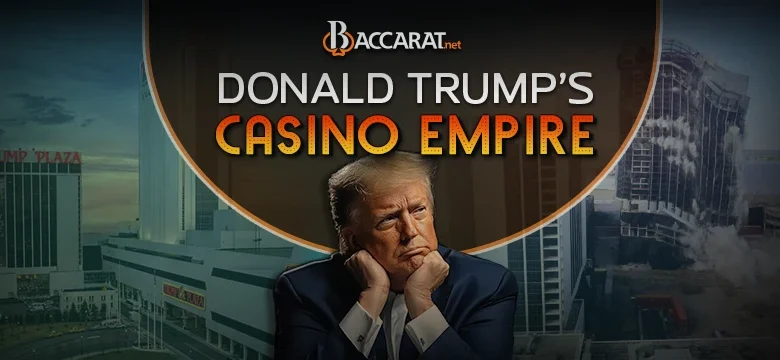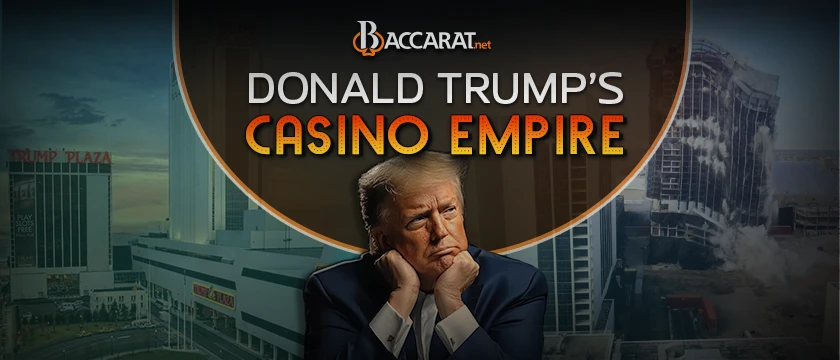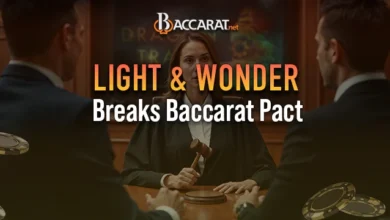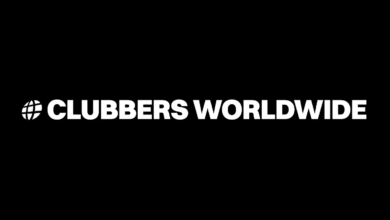The Rise and Fall of Donald Trump’s Casino Empire


Listen to this article:
It is well known that before becoming president, Donald Trump built a huge business empire. His ventures ranged from luxury real estate developments to a successful reality TV career. However, one area where he never quite managed to succeed was casinos.
Trump never attempted to enter the world of online gambling, so we don’t know what type of online baccarat site he may have run. But he did have a large role in shaping several casino properties in Atlantic City and a riverboat casino in Indiana. However, Trump’s gambling businesses faced repeated financial setbacks, regulatory issues, and allegations of ties to organized crime.
Trump Plaza Casino and Hotel
Donald Trump began his career in 1968 at his father’s real estate company, taking over as president in 1971 and later renaming it the Trump Organization. By March 1982, he had secured a casino license from the New Jersey Casino Control Commission in a notably swift two-hour hearing.
Trump partnered with Holiday Inn’s gaming division, Harrah’s, to open Harrah’s at Trump Plaza in 1984. Later that year, the name changed to Trump Plaza to avoid confusion with Harrah’s Marina.
The casino struggled early on and generated just $144,000 in pre-tax profits in the first half of 1985. A legal dispute erupted between Trump and Harrah’s after Trump acquired another nearly finished casino from Hilton, which he renamed Trump’s Castle. Harrah’s sued, arguing the name was too similar to Harrah’s at Trump Plaza, but the courts sided with Trump.
In 1986, Trump bought out Harrah’s stake for $70 million and later expanded Trump Plaza by acquiring a neighboring casino for $62 million and another bankrupt property for $63 million.
During the late 1980s and early 90s, the casino hosted a number of major events. While Trump Plaza is often linked to WrestleMania IV and V, the events were actually held at Atlantic City Boardwalk Hall, with Trump Plaza serving as a sponsor. However, the casino did host the famous baccarat game in which Akio Kashiwagi lost $10 million.
Bankruptcy and Final Closure
The casino faced financial trouble in the early 1990s, which was made worse by the opening of Trump Taj Mahal just a mile away. Trump Plaza narrowly avoided defaulting on a bond payment in 1991 by securing a $25 million mortgage on its parking garage. In 1992, it filed for prepackaged bankruptcy due to $250 million in debt.
A planned expansion in 1993 was scaled back due to a dispute over a nearby property owned by Vera Coking. By 1995, Trump had transferred ownership of the casino to Trump Hotels & Casino Resorts.
In 2004, Trump Hotels & Casino Resorts filed for bankruptcy, which resulted in a reduction in Trump’s role in the company as it was renamed Trump Entertainment Resorts. A second bankruptcy in 2009 saw Trump retain a 10% stake to allow continued use of his name.
By 2014, Trump sued to remove his name from Trump Plaza and Trump Taj Mahal, citing their deteriorating conditions. Trump Plaza had already announced plans to close, and on September 16, 2014, it officially shut down. After years of legal wrangling, the building was finally demolished on February 17, 2021.
Trump’s World Fair
While this Atlantic City casino was not open for long, it had a complex history. Originally opened in 1981 as Playboy Casino, it was operated by Playboy Enterprises before being rebranded as Atlantis in 1984. The casino stopped operating, but the hotel remained open until Trump acquired it in 1989 for $63 million.
Renamed Trump Regency, the casino reopened under the management of its mortgage holder, Chemical Bank, in 1992. Trump repurchased it in 1995 for $60 million, investing $48 million to relaunch it as Trump’s World Fair.
The Trump Casino in Indiana
Indiana legalized riverboat casinos in 1993, prompting Trump to propose a high-end riverboat casino for Gary, Indiana, complete with a promotional video featuring celebrities and Michael Jackson. Trump secured one of two available licenses in 1994.
Trump Casino opened in 1996 but was later included in the bankruptcy of Trump Hotels & Casino Resorts in 2004. It was sold to Don Barden, who rebranded it as Majestic Star II in 2005.
The Trump Taj Mahal
Construction of the Trump Taj Mahal began in 1983 under Resorts International. After the company’s chairman died in 1986, his heirs sold a controlling stake to Trump for $70 million. Since New Jersey law prohibited ownership of three casinos, Trump planned to close Resorts Casino and integrate it into the Trump Taj Mahal.
Trump’s takeover led to massive budget overruns, with costs soaring from $250 million to $930 million. In 1988, he attempted to buy out all remaining Resorts International stock at $22 per share, but TV producer Merv Griffin countered with a $35 per share offer. The dispute escalated into lawsuits before a settlement was reached in November 1988. Trump secured the Taj Mahal for $273 million, while Griffin took control of Resorts International.
Using $675 million in junk bond financing, the Trump Taj Mahal opened on April 2, 1990, branded as the “eighth wonder of the world”.
However, the casino soon fell into financial trouble, which led to a prepackaged bankruptcy in 1991 that handed 50% ownership to bondholders. Trump Hotels & Casino Resorts repurchased it in 1996 for $890 million.
A 1998 IRS investigation found that the casino had violated anti-money laundering laws 106 times, and it was issued a then-record $447,700 fine under the Bank Secrecy Act. Federal investigations also uncovered links between the casino and Russian mobsters, as well as an employee tied to Hong Kong’s 14K Triad.
The casino remained operational until October 10, 2016. Over the years, it hosted several events, including the first UFC fights under Dana White and the first casino strip club in the US in 2013. However, financial struggles led Trump Entertainment Resorts to file for bankruptcy in 2014. In 2017, Hard Rock International purchased the property.
Trump International Hotel Las Vegas
Las Vegas seemed like an ideal market for Trump’s gambling business. In 2002, he partnered with Phil Ruffin to develop Trump Tower Las Vegas, which was to be located near Ruffin’s New Frontier Hotel and Casino. However, the project faced multiple delays and economic setbacks.
While Trump International Hotel Las Vegas eventually opened as a 64-story luxury hotel and residential building, it never included a casino. According to Eric Trump, the company had no trouble obtaining a gaming license but ultimately chose not to pursue the casino business in Las Vegas. As such, today, Trump doesn’t own any casinos and it seems unlikely that he will do so again.

Hi, I’m Caroline, an experienced editor with a rich background in journalism. My career began at several Boston-based newspapers, where I specialized in editing and …



